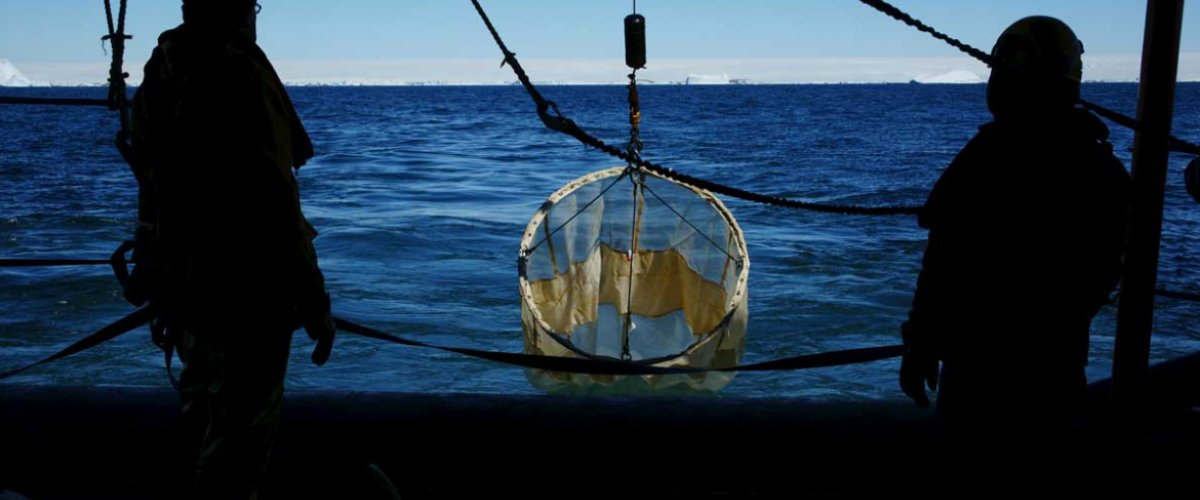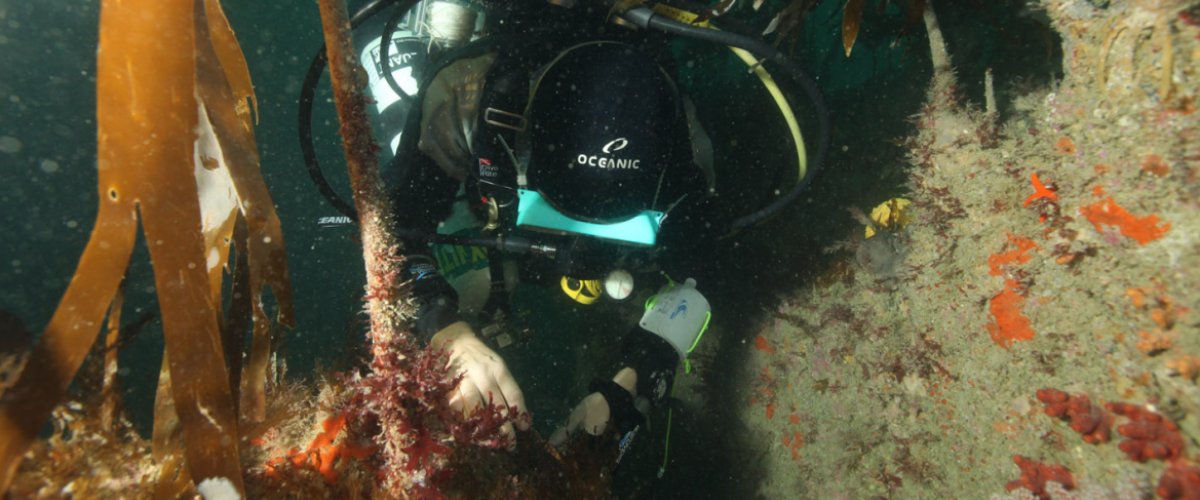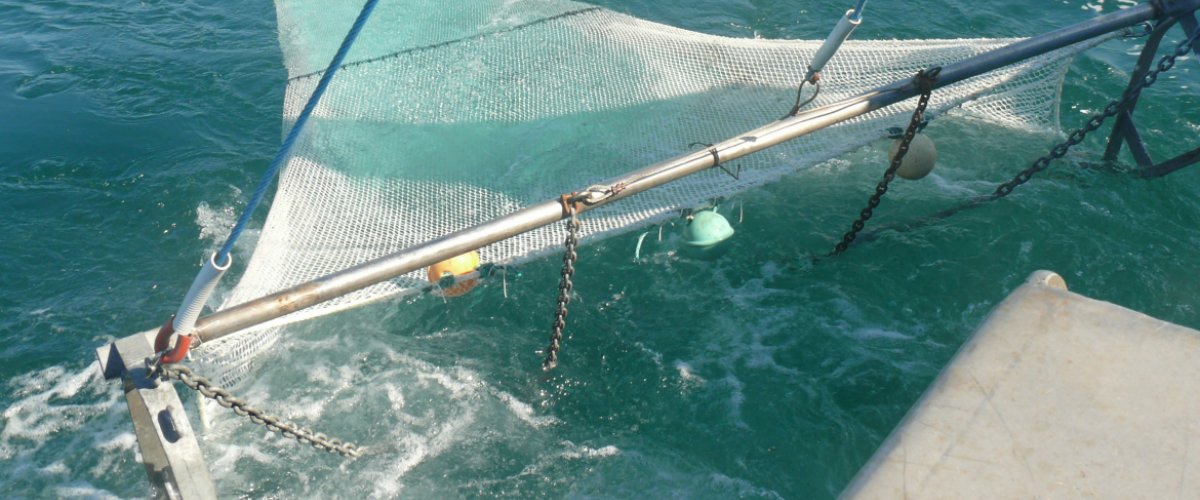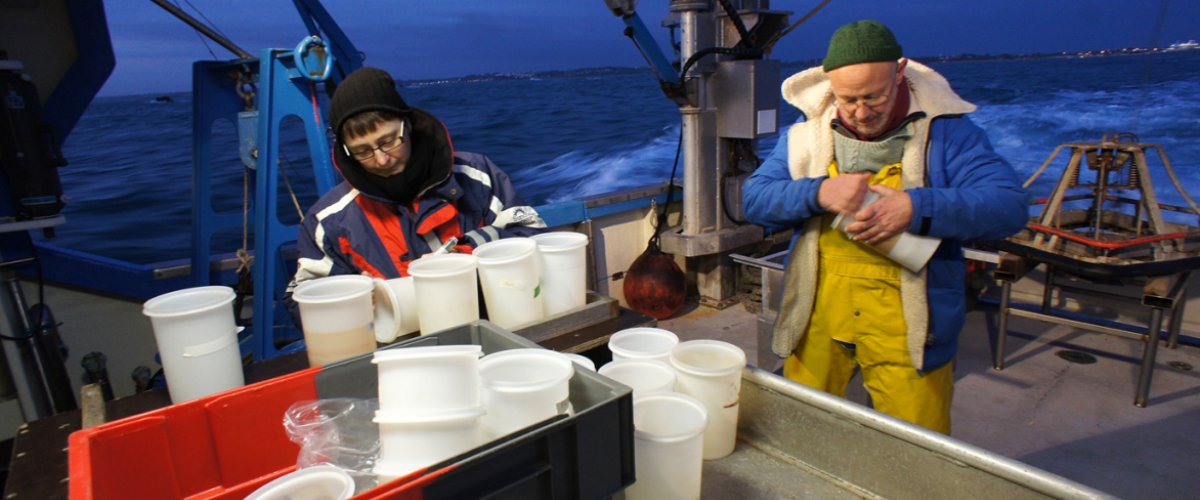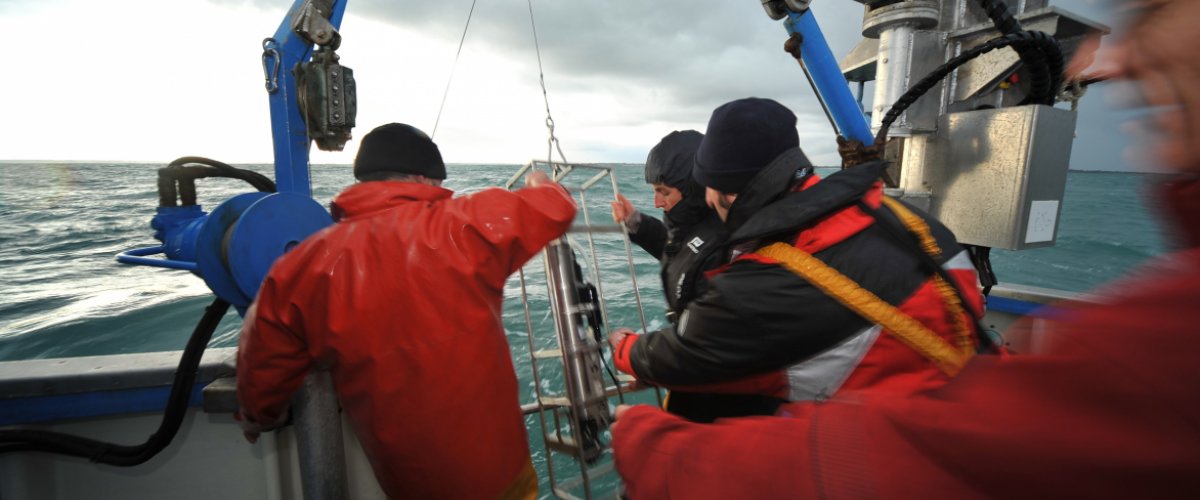Presentation
In the context of global change and the growing impact of human activities on coastal areas, medium- and long-term environmental monitoring is cru-cial for understanding and predicting the evolution of marine ecosystems. To meet these challenges, the Roscoff Biological Station compiles long-term monitoring data through its participation in several national networks and research programmes.
For over 50 years, the Roscoff Biological Station has been collecting data on seawater temperature and salinity off the coast of Roscoff. In 1998, it joined the Coastal Environment Observatory (SOMLIT) that federates eight marine stations on France’s three seaboards and regularly records a series of physico-chemical parameters. This long-term data series lends itself to the assessment of the impact of global change on coastal areas and the relative importance of the role local human activities play in that change. Recently, instrumented buoys or sensors were fitted on the Roscoff-Plymouth ferry to take high-frequency recordings of environmental data.
In addition to coastal environment monitoring, various biodiversity monitoring programmes have been set up since 1977, to study the changes in the plankton and benthic communities and in the long-term variability in the genetic diversity of indicator species. Although the data collected as part of Oblic (affiliated with Ecoscope, a national network of biodiversity observatories) are used for basic research, some contribute to public environmental policy by providing information on the state of health of the coastal environment. In addition, the Roscoff Biological Station regularly carries out inventories of local flora and fauna, constituting valuable scientific baseline for assessing changes in diversity.




